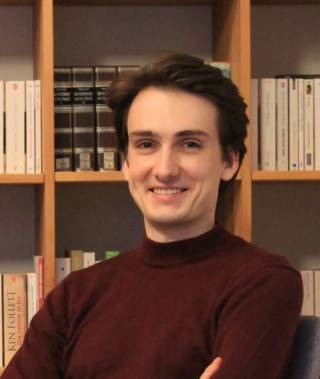Romain wrote and defended his thesis in 2020 during the COVID-19 lockdown. His supervisor was Prof. Richard Ellis.

I started my PhD at UCL in 2017, moving from Switzerland where I had done my studies. The traditional curriculum in Switzerland is not very hands-on, and I had very limited research experience. Despite that, I went to observe at Keck during the second(!) month of my PhD and this fantastic experience set the tone for the next three years. I was most privileged to have the opportunity to do multiple observing runs at the Keck telescopes in Hawaii and the NTT in Chile, and still treasure these moments as the best in my PhD. My thesis focused on observations of galaxies and quasars in the first billion years of the Universe. In particular, I tried to establish whether early galaxies emitted enough ionizing photons to drive cosmic hydrogen reionisation. I had an incredible time thanks to my supervisor and the postdocs who mentored me, as well as the tight-knit community of PhD students in the UCL Astronomy group.
After writing and defending my thesis in 2020 during the COVID-19 lockdown, I moved to a postdoctoral researcher position at the Max-Planck Institute for Astronomy (Heidelberg), before moving again in 2023 to a “maître-assistant” (Research and Teaching fellow) position at the University of Geneva. I was lucky to get positions in cities that also provided interesting opportunities to my partner, and at the same time provoked me to start somewhat afresh and learn to work with completely different instruments. Nonetheless, I managed to stay thematically close to my PhD topic, and therefore the work I did and the contacts I made during my time at UCL are still extremely relevant today. I now look forward to starting my own research group somewhere in Switzerland in a few years.
My advice to anyone considering a PhD in Astronomy is to find the science case and the people with which you enjoy working. There are so many ways to contribute to science: do not settle until you have found something that makes you happy every (other) day.
 Close
Close

